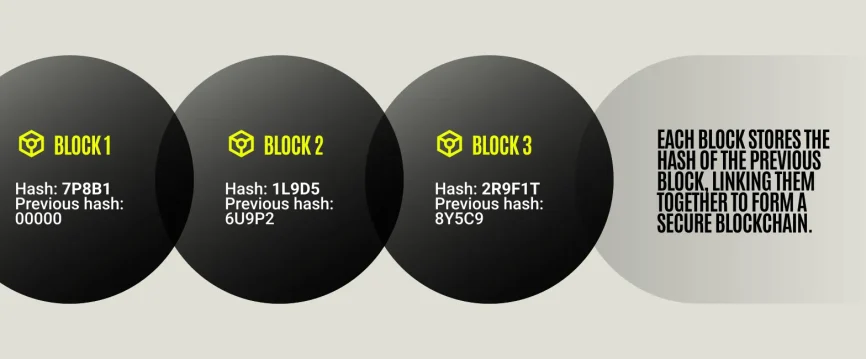What is Hash in Crypto?
A hash is an output by a hash function that takes data and produces a string of characters, which is typically a sequence of numbers and letters.
Table of contents:
A hash function is a fundamental concept in cryptography, providing a secure and efficient way to transform data. It takes any input, regardless of size, and produces a fixed-length string of characters, which is the hash.
For example, Bitcoin uses the SHA-256 cryptographic hash function, while Ethereum uses Keccak-256. A sample SHA-256 hash of the phrase “blockchain hash explained” is: e4b7fa08462199927c2235a11c87d54a7a828a863796540c53f35a3e52ff55ec. This fixed-length output shows how any input, whether short or long, produces a unique digital fingerprint.
Importantly, even a minor change in the input data results in a substantially different hash value. This property, known as the avalanche effect, ensures that similar inputs generate vastly different outputs.
A hash can be thought of like a fingerprint for data. Just as no two people share the same fingerprint, well-designed hash functions ensure that no two inputs produce the same output. This makes hash functions crucial for maintaining the integrity of transactions processed through a digital currency payment gateway, where each transaction’s data is uniquely encrypted.
Hash functions are designed to be one-way, meaning it should be computationally infeasible to reverse the process and obtain the original input from the hash value. This irreversible nature makes hash functions integral to various cryptographic applications and plays a pivotal role in the security of blockchain networks.
The Role of Hash in Blockchain
In the context of blockchain technology, hashes play a crucial role in ensuring the integrity and security of the distributed ledger. Each block in a blockchain contains a hash of the previous block’s data, creating a chain of interconnected blocks. This linking is achieved through a process where the hash of one block becomes part of the input for generating the hash of the next block.

Each block stores the hash of the previous block, linking them together to form a secure blockchain
The immutability of hashes contributes to the security of the blockchain. Any alteration in the data of a block would require changing its hash, which in turn would affect the subsequent blocks, creating a domino effect. Since altering a block’s hash would necessitate changing the hashes of all subsequent blocks, the integrity of the entire blockchain is preserved.
In addition to maintaining the integrity of the blockchain, hash functions are employed in various cryptographic processes within blockchain networks. Passwords are often hashed before storage, and digital signatures rely on hash functions to ensure the authenticity and integrity of messages.
Can Hash Functions Be Cracked?
The security of hash functions lies in their one-way and irreversible nature. While it’s theoretically possible for two different inputs to produce the same hash value (a collision), modern cryptographic hash functions are designed to be resistant to such occurrences.
Some older hash functions, such as MD5 and SHA-1, have been broken because researchers found practical collisions. That is why modern systems rely on stronger algorithms like SHA-256 or SHA-3, which are designed to resist these attacks.
Conclusion: what is a hash function in crypto?
A hash in crypto is a fundamental element of blockchain technology. It converts data, such as transactions or blocks, into a fixed-length string that is unique and difficult to reverse. This process is meant to help protect data integrity and allow blockchain systems to operate reliably.
Hashes can be used in verifying transactions, protecting passwords, and linking blocks in a chain. Understanding how hashing works is important for analyzing blockchain infrastructure and crypto transactions, as it underpins the security and consistency of systems like Bitcoin, Ethereum, and crypto payment platforms.
Other Terms from the Crypto Industry